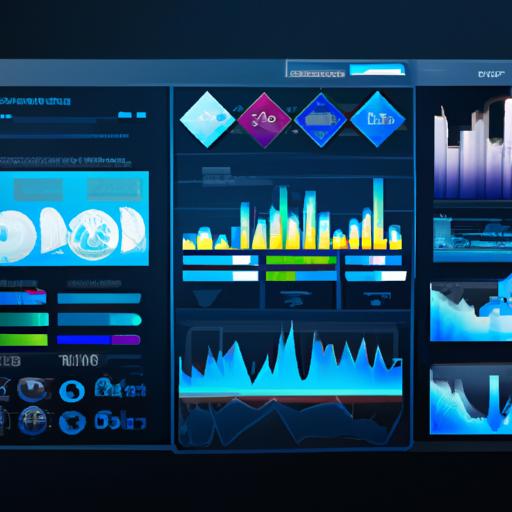The Ultimate Guide to Choosing the Best Commodity Trading Platform
Introduction
In the world of trading, a commodity trading platform serves as the gateway to a realm of financial opportunities. But what exactly is a commodity trading platform? Essentially, it is a digital tool that enables traders to buy and sell various commodities such as gold, oil, or agricultural products.
The importance of selecting the best commodity trading platform cannot be overstated. It can significantly impact your trading experience, from the ease of use to the range of commodities available for trading. With numerous platforms vying for your attention, navigating through the options can be overwhelming. Fear not, as this article aims to guide you through the process of choosing the best commodity trading platform tailored to your needs. Let’s dive into the intricacies of commodity trading platforms and unravel the key factors to consider when making this crucial decision.
Factors to Consider When Choosing a Commodity Trading Platform
User-Friendly Interface
When evaluating commodity trading platforms, the user interface plays a pivotal role in your overall trading experience. A user-friendly platform should be intuitive, easy to navigate, and provide essential features at your fingertips. Look for platforms with customizable dashboards, real-time market data, and seamless order execution to enhance your trading efficiency.
Security Features
The security of your investments should be a top priority when selecting a commodity trading platform. Ensure that the platform implements robust security measures such as encryption protocols, two-factor authentication, and regular security audits to safeguard your sensitive information and funds. Trusting your platform’s security can provide peace of mind as you engage in trading activities.
Fees and Commissions
Understanding the fee structure of a commodity trading platform is crucial to managing your trading costs effectively. Take into account factors such as trading fees, account maintenance fees, and withdrawal charges. Compare the fee structures of different platforms to identify the most cost-effective option without compromising on essential features and services.
Range of Commodities Available for Trading
Diversification is key to a successful trading strategy, and the availability of a wide range of commodities on a platform can offer ample opportunities for portfolio diversification. Consider the variety of commodities offered by a platform, including metals, energy products, agricultural goods, and more. A diverse selection allows you to explore different markets and capitalize on various trading opportunities.
Comparison of Top Commodity Trading Platforms
Platform A: Features, Pros, and Cons
Platform A is renowned for its user-friendly interface, making it ideal for both novice and experienced traders. With a wide range of commodities available for trading, from precious metals to energy products, Platform A caters to diverse trading interests. The platform also offers advanced charting tools and technical analysis features, empowering traders to make informed decisions.
Pros:
- Intuitive interface for seamless navigation
- Extensive range of commodities for diversified trading
- Robust charting tools for in-depth analysis
Cons:
- Higher fees compared to some competitors
- Limited educational resources for beginners
- Customer support may be slow to respond
Platform B: Features, Pros, and Cons
Platform B stands out for its robust security features, ensuring the safety of traders’ funds and personal information. Additionally, Platform B provides competitive fees and commissions, making it a cost-effective option for traders of all levels. Traders can access a variety of educational resources, including webinars and tutorials, to enhance their trading knowledge.
Pros:
- Strong security measures for peace of mind
- Competitive fees and commissions
- Rich educational resources for continuous learning
Cons:
- Limited range of commodities available
- Complex interface may be overwhelming for beginners
- Lack of advanced technical analysis tools
Platform C: Features, Pros, and Cons
Platform C boasts a comprehensive range of trading tools, including customizable charts and real-time market data. Traders can take advantage of automated trading features and algorithmic strategies to optimize their trading performance. Platform C also offers responsive customer support, ensuring prompt assistance when needed.
Pros:
- Customizable charts and real-time data for informed decision-making
- Automated trading options for efficient trading
- Responsive customer support for timely assistance
Cons:
- Higher fees for certain trading activities
- Steeper learning curve for beginners
- Limited range of educational resources
In the competitive landscape of commodity trading platforms, each platform offers unique features and benefits. Evaluating the pros and cons of platforms A, B, and C can help you make an informed decision based on your trading preferences and goals.
How to Evaluate the Best Commodity Trading Platform for Your Needs
Assessing Your Trading Goals and Experience Level
Before diving into the sea of commodity trading platforms, it’s crucial to assess your trading goals and experience level. Are you a seasoned trader looking to expand your portfolio, or a novice dipping your toes into the trading world? Understanding your objectives and skill level will help narrow down the platforms that align with your needs.
Conducting Research on Different Platforms
Research is your best friend when it comes to choosing the best commodity trading platform. Take the time to explore the features, fees, and user reviews of various platforms. Look for platforms that offer a user-friendly interface, robust security measures, and a diverse range of commodities. By delving into the details of each platform, you can make an informed decision that caters to your trading preferences.
Seeking Recommendations from Other Traders
Seeking recommendations from fellow traders can provide valuable insights into the pros and cons of different commodity trading platforms. Reach out to trading communities, forums, or social media groups to gather firsthand experiences from peers. Their recommendations can offer a different perspective and help you navigate the vast landscape of commodity trading platforms with confidence.
Tips for Maximizing Your Trading Experience on a Commodity Trading Platform
Setting up Alerts and Notifications
Stay ahead of the curve by setting up alerts and notifications on your chosen commodity trading platform. These features can keep you informed about market movements, price changes, and other relevant updates in real-time. By customizing alerts based on your trading preferences, you can seize profitable opportunities and make informed decisions promptly.
Utilizing Technical Analysis Tools
Enhance your trading strategies by leveraging technical analysis tools available on the commodity trading platform. From charting tools to indicators like moving averages and oscillators, these resources can help you analyze market trends, identify patterns, and predict future price movements. By mastering these tools, you can make well-informed trading decisions and improve your overall performance.
Diversifying Your Portfolio
Diversification is key to managing risk and maximizing returns in commodity trading. By diversifying your portfolio across different commodities, sectors, or asset classes, you can reduce the impact of market volatility on your investments. Spread your risk intelligently and capitalize on various opportunities to achieve a balanced and profitable trading portfolio.


